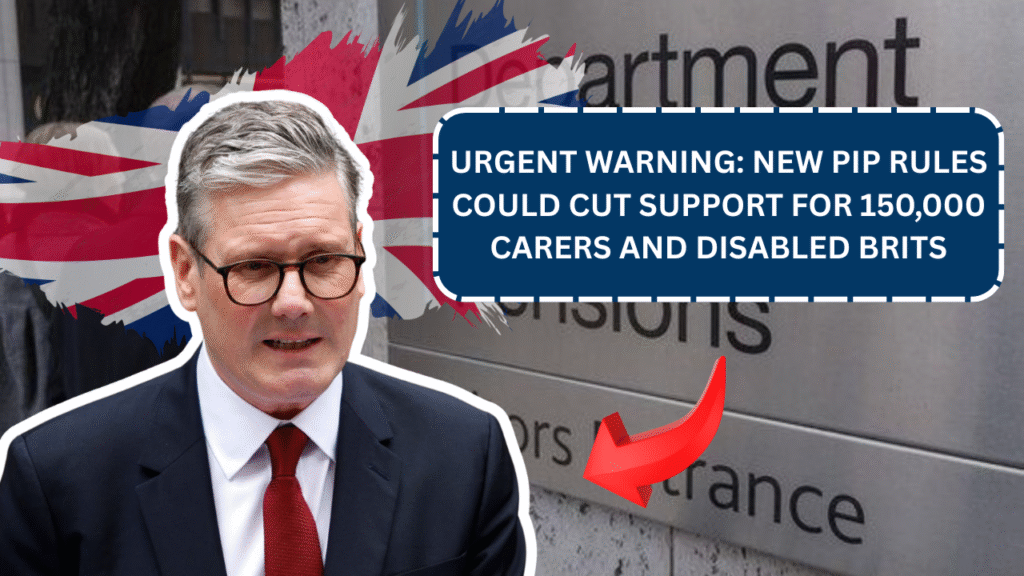The UK Department for Work and Pensions (DWP) has announced key changes to the Personal Independence Payment (PIP) system, signaling a crackdown that could see thousands of disabled people lose out on vital financial support. The reforms, set to begin in November 2026, form part of a wider government effort to reduce welfare spending but have sparked widespread concern among disability advocates, carers, and politicians alike.
What Is PIP and Why Is It Important?
Personal Independence Payment is a benefit aimed at helping people with long-term illnesses or disabilities meet extra costs caused by their condition. It consists of two components:
- Daily Living Component – for help with everyday tasks such as cooking, washing, and managing medication.
- Mobility Component – for help with getting around outside the home.
Currently, PIP payments can reach over £110 per week for those who qualify for the higher rate of the Daily Living Component, providing essential financial relief to many vulnerable households.
What Are the New Changes?
The DWP has confirmed that from November 2026, eligibility for the Daily Living Component will become stricter. To qualify, claimants will now need to meet both of these criteria during assessments:
- Score at least 4 points in one activity.
- Score 8 points overall across all assessed activities.
Previously, the scoring system allowed more flexibility in meeting eligibility requirements. The tightened criteria will inevitably lead to many losing their PIP benefits.
Additionally, carers who receive the Carer’s Allowance or Universal Credit Carer’s Element tied to the care recipient’s PIP status could also be affected. It is estimated that around 150,000 carers may lose their payments by 2029/30 due to these changes.
Why Is This Happening?
The government has argued that the reforms are necessary to ensure that support goes only to those who truly need it, aiming to reduce fraud and errors in the system. The DWP also cites the need to contain rising welfare costs amid broader economic challenges.
However, critics argue that the changes are part of wider welfare cuts that risk pushing disabled people and carers into deeper financial hardship. According to a report from The Guardian, over three million Britons are expected to lose out from benefit cuts by 2029/30, with many falling into poverty as a result.

Political and Public Reaction
The announcement has triggered a significant backlash. More than 100 Labour MPs have publicly opposed the plans, warning that the reforms are unfair and will cause suffering to vulnerable groups. Some have even threatened to vote against their party leadership to block the changes.
Disability charities and campaigners have also voiced strong criticism, emphasizing that the new assessment thresholds do not adequately reflect the realities of living with disabilities and chronic illnesses. They warn that many individuals will lose access to vital financial support that helps them maintain independence and dignity.
Carers, who often juggle unpaid care with paid work, face uncertainty as the potential loss of Carer’s Allowance could force difficult choices about employment and care provision.
What Does This Mean for Those Affected?
For individuals who lose PIP, the financial impact could be severe. The Daily Living Component’s higher rate currently provides around £110.40 per week, which helps cover costs for care, mobility aids, and other disability-related expenses. Losing this support may result in an annual income drop of up to £4,500.
Experts predict that the changes will increase poverty rates among disabled people and carers, with as many as 250,000 individuals pushed below the poverty line due to reduced benefits.
What Can Claimants Do?
If you currently receive PIP or care for someone who does, it is important to stay informed about the upcoming changes and prepare accordingly.
These websites can help you check eligibility for various benefits and explore other financial support options.
Government’s Response and Future Plans
Work and Pensions Secretary Liz Kendall has announced plans to overhaul the disability benefits assessment process. The goal is to make assessments fairer and more accessible, but specific details are yet to be revealed.
Meanwhile, the government remains committed to implementing the PIP eligibility changes as part of its broader welfare reform agenda.
Conclusion
The upcoming changes to PIP eligibility represent one of the most significant welfare reforms in recent years, with serious consequences for disabled people and carers across the UK. While the government stresses the need for efficiency and fraud prevention, critics warn of rising poverty and hardship among vulnerable groups.
Anyone affected by these changes should use official resources to check their benefit status and prepare for the new assessment rules. Continued public and political scrutiny will be vital in shaping how these reforms are ultimately implemented.


